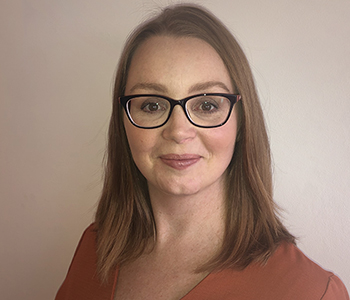
A student at a girls’ school that leaned towards arts and languages, Jenny’s love of maths, science and problem-solving naturally led to an interest in engineering. Perhaps unsurprisingly, she was the only one of her year group to pursue a degree in engineering.
“I looked at engineering when my parents suggested I train in a profession that was in high demand,” explains Jenny. “I knew there was a shortage of engineers in the UK, and a good qualification could also open up opportunities overseas. It was a thought-out decision.”
Jenny’s determined approach paid early dividends when she was named Graduate of the Year with her first employer, then named AMEC NNC. But she won’t pretend it was easy.
“To make the most of the training opportunities on the graduate scheme, I relocated twice in two years, built my personal resilience, and created new networks from scratch. I worked long hours, I travelled a lot, and I took on more and more demanding tasks.
“It’s important to be honest about what it takes to achieve success – but I have to say that winning that award was fantastic. It confirmed that I was meeting (and exceeding) expectations, and that really boosted my confidence.”
Such confidence should not be underestimated, for a young woman working in what is yet a male-dominated profession.
Becoming a Fellow
In fact, Jenny has continued to try and challenge the norm, becoming a Chartered Engineer in her mid-20s and a Fellow of the IMechE at 36.
“Becoming a Fellow was important to me as it independently validates the level at which I am operating,” enthuses Jenny. “A number of my peers encouraged me to apply as they identified qualities in me that are required for Fellowship.
“But I also wanted to challenge the stereotypes associated with it. It’s not just about having 30 years’ experience. It’s about leadership, influence and being proactive; personal qualities and professional experience aren’t linked exclusively to age.”
Today, Jenny is a senior mechanical design engineer specialising in pressure systems. She is currently working on a nuclear new build facility - an extension of the existing Site Ion Exchange Effluent Plant (SIXEP) - that will be built at the Sellafield site in West Cumbria.
“I wanted to work at Sellafield Ltd as I knew the company places a high value on training and development,” says Jenny, “And there’s a whole range of career opportunities here – from extending the life of ageing assets, to building new facilities. We have a 100-year programme of work and it’s the norm to gain experience across the whole project lifecycle.”
Promoting Engineering
And while developing her own career in this way, Jenny is passionate about promoting the profession to new engineers – particularly women – and is a mentor, graduate assessor and role model.
“The only way engineering will stop being a male-dominated profession is if women are willing to join.”
What advice does Jenny have for someone considering a career in engineering?
“There are lots of myths about engineering,” muses Jenny. “When I tell people I’m an engineer, I’m often asked if fix washing machines. That’s not what I do day-to-day but I could try!
“I would advise anyone considering a career as an engineer to have a chat with one, and work out what they actually do – you might be surprised, and hopefully intrigued.
“Then remember that your career is a marathon, not a sprint. Opportunities may not come your way exactly when you want them, but continue to develop and challenge yourself so that you are prepared for more responsibility when the time is right.
“Engineers never stop learning. And like most careers, being able to communicate, break down complex problems, and ask for expert help when you need it are all things that will keep you challenged.
“One thing’s for sure, there’s absolutely no need to worry about it ever being boring!”
Find out more about becoming a Fellow